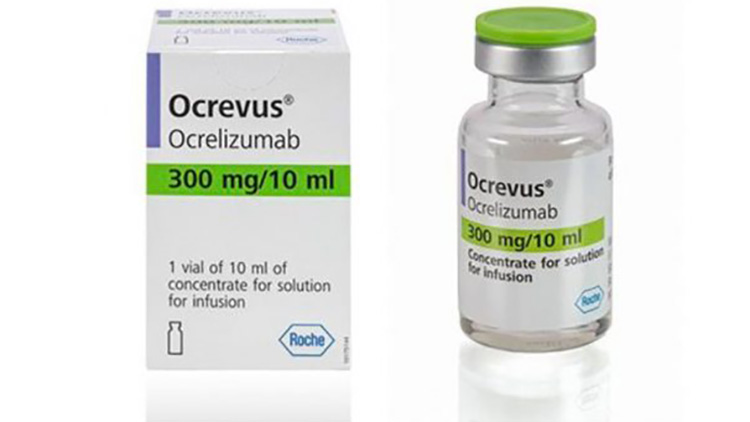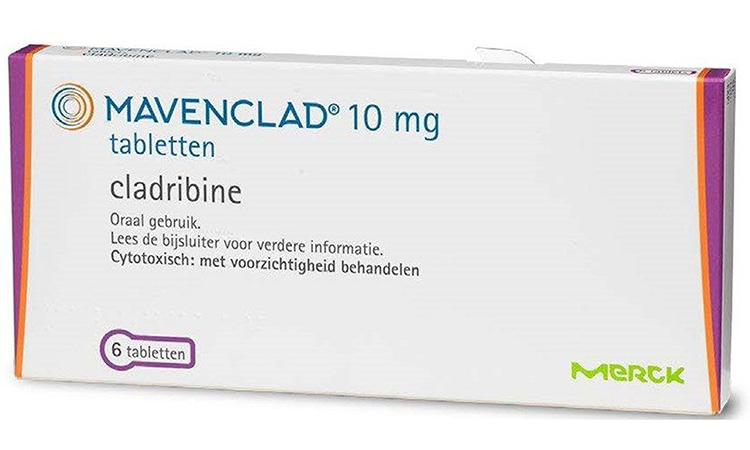Ocrevus (ocrelizumab) vs Mavenclad (cladribine)
Ocrevus (ocrelizumab) vs Mavenclad (cladribine)
Ocrevus (ocrelizumab) is a monoclonal antibody administered via intravenous infusion, designed to target CD20-positive B cells, which are thought to play a role in the pathogenesis of multiple sclerosis (MS). Mavenclad (cladribine) is an oral medication that selectively reduces certain white blood cells, potentially limiting the immune system's attack on the nervous system. The choice between Ocrevus and Mavenclad for an individual with MS would depend on various factors, including disease severity, treatment goals, lifestyle considerations, potential side effects, and the patient's overall health profile, which should be discussed with a healthcare provider.
Difference between Ocrevus and Mavenclad
| Metric | Ocrevus (ocrelizumab) | Mavenclad (cladribine) |
|---|---|---|
| Generic name | Ocrelizumab | Cladribine |
| Indications | Primary Progressive Multiple Sclerosis (PPMS), Relapsing forms of Multiple Sclerosis (RMS) | Relapsing forms of Multiple Sclerosis (RMS) |
| Mechanism of action | CD20-directed cytolytic antibody | Immunosuppressant; purine analog |
| Brand names | Ocrevus | Mavenclad |
| Administrative route | Intravenous infusion | Oral |
| Side effects | Infusion reactions, infections, skin cancer, PML | Lymphopenia, infections, liver toxicity, PML |
| Contraindications | Active hepatitis B infection, active infection | HIV, active chronic infections (e.g., tuberculosis), active malignancy |
| Drug class | CD20-directed monoclonal antibody | Antimetabolite |
| Manufacturer | Genentech | Merck |
Efficacy
Ocrevus (Ocrelizumab) Efficacy in Treating Multiple Sclerosis
Ocrevus (ocrelizumab) is a monoclonal antibody designed to target CD20-positive B cells, which are believed to play a key role in the pathogenesis of multiple sclerosis (MS). The efficacy of Ocrevus has been established through several clinical trials, most notably the OPERA I and OPERA II studies for relapsing forms of MS, and the ORATORIO trial for primary progressive MS (PPMS). In these studies, Ocrevus demonstrated a significant reduction in disease activity as measured by relapse rates, MRI lesions, and disability progression when compared to high-dose interferon beta-1a (REBIF), a standard MS therapy, or placebo in the case of PPMS.
In the OPERA trials, patients with relapsing-remitting multiple sclerosis (RRMS) treated with Ocrevus experienced a relative reduction in the annualized relapse rate of approximately 46-47% over a two-year period compared to those treated with interferon beta-1a. Additionally, Ocrevus showed a significant delay in the progression of clinical disability sustained for at least 12 weeks, as well as a reduction in the number of new or enlarging T2 and gadolinium-enhancing lesions on MRI scans.
Mavenclad (Cladribine) Efficacy in Treating Multiple Sclerosis
Mavenclad (cladribine) is an oral therapy that selectively targets lymphocytes thought to be integral to the pathological process of MS. The efficacy of Mavenclad for the treatment of relapsing forms of multiple sclerosis, including relapsing-remitting disease and active secondary progressive disease, has been demonstrated in the CLARITY and CLARITY Extension studies. These studies showed that Mavenclad significantly reduced the annualized relapse rate by approximately 58% over a two-year period compared to placebo. Additionally, Mavenclad was associated with a reduction in the risk of three-month sustained progression of disability.
Furthermore, MRI outcomes from the CLARITY studies indicated that patients receiving Mavenclad had fewer new or enlarging T2 lesions and fewer gadolinium-enhancing lesions compared to those receiving placebo. The therapeutic regimen of Mavenclad involves a maximum of 20 days of oral treatment over two years, which may be an attractive option for patients seeking a less frequent dosing schedule. However, it is important to note that the long-term safety profile of Mavenclad is still under evaluation, and it carries a risk of potential serious side effects, which should be carefully considered when choosing a treatment for MS.
Regulatory Agency Approvals
Ocrevus
-
European Medical Agency (EMA), European Union

-
Food and Drug Administration (FDA), USA

-
Health Canada

-
Therapeutic Goods Administration (TGA), Australia

-
Medsafe (NZ)

Mavenclad
-
European Medical Agency (EMA), European Union

-
Food and Drug Administration (FDA), USA

-
Health Canada

-
Therapeutic Goods Administration (TGA), Australia

-
Medsafe (NZ)

Access Ocrevus or Mavenclad today
If Ocrevus or Mavenclad are not approved or available in your country (e.g. due to supply issues), you can access them via Everyone.org.
How it works

Make an enquiry
Choose the medicine you want to buy, answer a couple of questions, and upload your prescription to speed things up. We’ll get back to you within 24 hours.


Make an enquiry
Choose the medicine you want to buy, answer a couple of questions, and upload your prescription to speed things up. We’ll get back to you within 24 hours.


Breeze through the paperwork
We'll guide you through the required documents for importing unapproved medicine, ensuring you have all the necessary information.


Get a personalized quote
We’ll prepare a quote for you, including medicine costs and any shipping, administrative, or import fees that may apply.


Receive your medicine
Accept the quote and we’ll handle the rest - sourcing and safely delivering your medicine.

Some text on this page has been automatically generated. Speak to your physician before you start a new treatment or medication.
Let's talk
If you have any questions, call us or send us a message through WhatsApp or email:
Contact us




